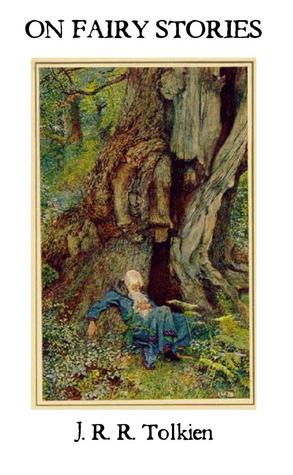On Fantastic Stories - Part 2: Escape
Fantasy has long been associated with escapism - perhaps more than any other genre in entertainment. I actually have a quote from Tolkien in the side-bar of my blog about the element of "escape" (sorry it is so long...it's just so good!):
Tolkien has a valid point, but since the time that he wrote, our culture has embraced escapism like never before. From binge-watching to LARPing, escaping the ordinary world is now over-valued, and with it goes the acceptance of over-exaggerated passions. Whenever I see people clutching their virtual hearts, crying out "The Feels!" I can't help but be suspicious of the true worth of the source.
I believe that one of the main functions of fantastic fiction (fairy-stories, fantasy, sci-fi) is not to provide escape, but to be the waking dream of society
- a share-able experience in which the subconscious can test the values and methodology of culture and one's self.Furthermore, like the Cambellion Hero, readers are fated to return to the "ordinary" world. The journey was always going to be temporary - and if it is self-defined as an escape instead of as an adventure, does that exempt the hero from the duties the Campbellian cycle obligates upon the return? The boons they are to bring to the ordinary world from the extraordinary which improve their community? Are they to be reduced to merely "feels"?
Another of the main functions of fantastic fiction is to inspire. Not merely "I love this," but "I want to be like this."
For example, when the first How to Train Your Dragon (HTTYD) film came out, many audience members were swept up by the soaring music and lamented that dragons were not real and could not be kept as pets or ridden in the sky. This is a legitimate desire, but it is not the kind of inspiration I mean.Fantastic fiction should prod the reader to implement its themes in their own life. In HTTYD, this might be the resolution to help others - even enemies - in need, to admit our mistakes and work to fix them, to work together towards a worthy goal, to think of solutions instead of wallow in defeat and self-pity.



Comments
Post a Comment